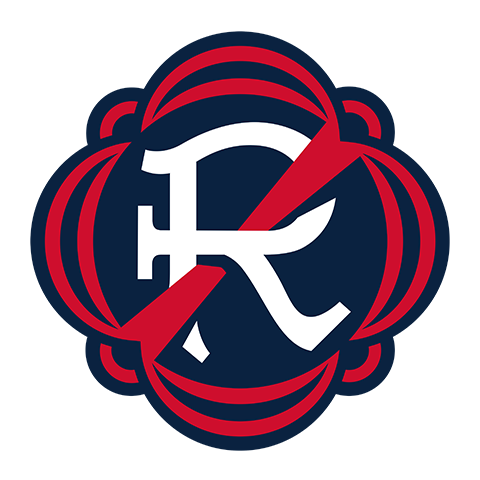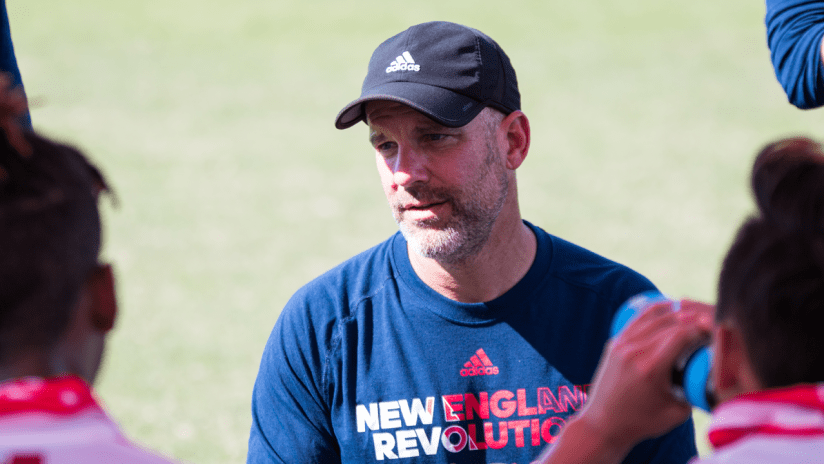FOXBOROUGH, Mass. – The first 10 years of the New England Revolution Academy have been, by and large, fairly successful. Four players have come through the system to sign contracts with the first team, including a pair – Scott Caldwell and Diego Fagundez – who’ve earned team MVP honors while playing more than 10,000 minutes at the professional level.
Caldwell (27 years old) and Fagundez (23) have been everyday starters for years, while the club has high hopes for the continued development of Zach Herivaux (22) and Isaac Angking (18), both of whom spent significant time training with the first team before signing MLS contracts.
But one decade after launching what’s become the premier youth development academy in New England, the Revs have their sights set on an even brighter future, one in which the current Homegrown quartet is merely the start of a steady flow of local talent rising through the ranks.
“We’re really happy with the progress that we’ve made to date, but we also know that things continue to evolve, and the game continues to grow,” said Bryan Scales, now in his eighth season as the Revolution’s Director of Youth Development. “We have to prepare for the next 10 years.”
That preparation has spawned a series of new initiatives within the Revolution Academy, all designed to help the club identify young talent, eliminate economic and geographic barriers to participation, and develop those players at the appropriate pace to maximize their chances of playing at the MLS level.
To achieve those objectives the Revs have hired more full-time, A-licensed coaches at all six Academy age groups (U13, U14, U15, U17, U19, U23), strengthened the relationships with their alliance clubs through a scholarship program designed to reward those clubs for their role in developing first-team players, and committed to bringing free training to underserved players in Boston.
Beginning in the fall, the Revolution Academy will also introduce a transportation program that will provide shuttle service from various T stops in the area direct to Gillette Stadium, providing easier access to training sessions for players in urban areas.
“We’ve tried to eliminate as many barriers as possible for the high-level player who may or may not have the resources or the support at home to be able to get onto a professional track with our Academy,” said Scales. “[The transportation program] should allow kids that are in Boston or on any of the T lines to be able to get to a certain spot so they can come to training.”
Going one step further, this fall will also see the launch of a host family program, allowing players from the edges of the New England region and beyond to join the Revolution Academy without incurring the costs or burden of extensive travel or relocation.
It’s an initiative that will significantly widen the net for the Revolution’s talent acquisition.
“First and foremost, we have an obligation and a mission to develop the young, elite player from New England,” Scales said. “But what this allows us to do is not only look outside of our region for impact-level Academy kids, but also to bring in players that might be on the periphery of our territory in western Massachusetts, Vermont, New Hampshire and Maine, closer to Gillette Stadium.”
The benefits of these types of initiatives are two-fold: not only do they increase the Revolution’s chances of bringing the region’s top young players into their Academy, but they also serve the players currently in the system by providing high-level talent to challenge them on the training ground every day.
It’s those types of experiences that can only be produced at a fully-funded Academy, where the only requirements for participation are talent and dedication.
“It’s always been the critical component to our Academy and any other high-level professional Academy around the world – the ability to play against the top players in training every single week,” Scales said. “There’s no substitute for it. It’s the accelerant that allows those players to develop faster and to a degree that they can now make an impact in the professional game.”
Moving forward, not only will Revolution Academy players be challenged by the best every day in training, but also on the weekends by fellow MLS competition, as the U.S. Soccer Development Academy schedule will provide more opportunities for the older age groups to play against sides like Atlanta United, Orlando City, D.C. United and Toronto FC, as opposed to just the New York clubs and Montreal.
As soon as Memorial Day Weekend that list will also include the Vancouver Whitecaps, as some of the Revolution’s youth teams will travel to the Pacific Northwest with the first team on one of the Kraft family’s private jets, play against the Whitecaps’ Academy teams, and watch the first-team match.
“All of those MLS academies have the same mission as us, which is to develop pros,” said Scales. “You can see like-minded development philosophies going at it with each other.”
It’s that mission – developing players to one day play for the Revolution’s first team – that’s the driving force behind all of these initiatives, and while it may take several years to see the biggest benefits, the Revs are confident that their commitment to youth development will ultimately pay big dividends.
“The mission for us has been very clear from day one – it’s to identify and develop the next Diego, Scott, Zach, Isaac, whoever it may be,” said Scales. “For us to be able to add all of the things that we can add into their pathway that will help prepare them for a high-level career in the sport, it’s invaluable for them.
“We’ve been talking for a long time, and this has been a big project of mine, to think about what are the things that we need to prepare for the next 10 years … All of these things are in preparation for the next phase of our Academy and the club in general.”











